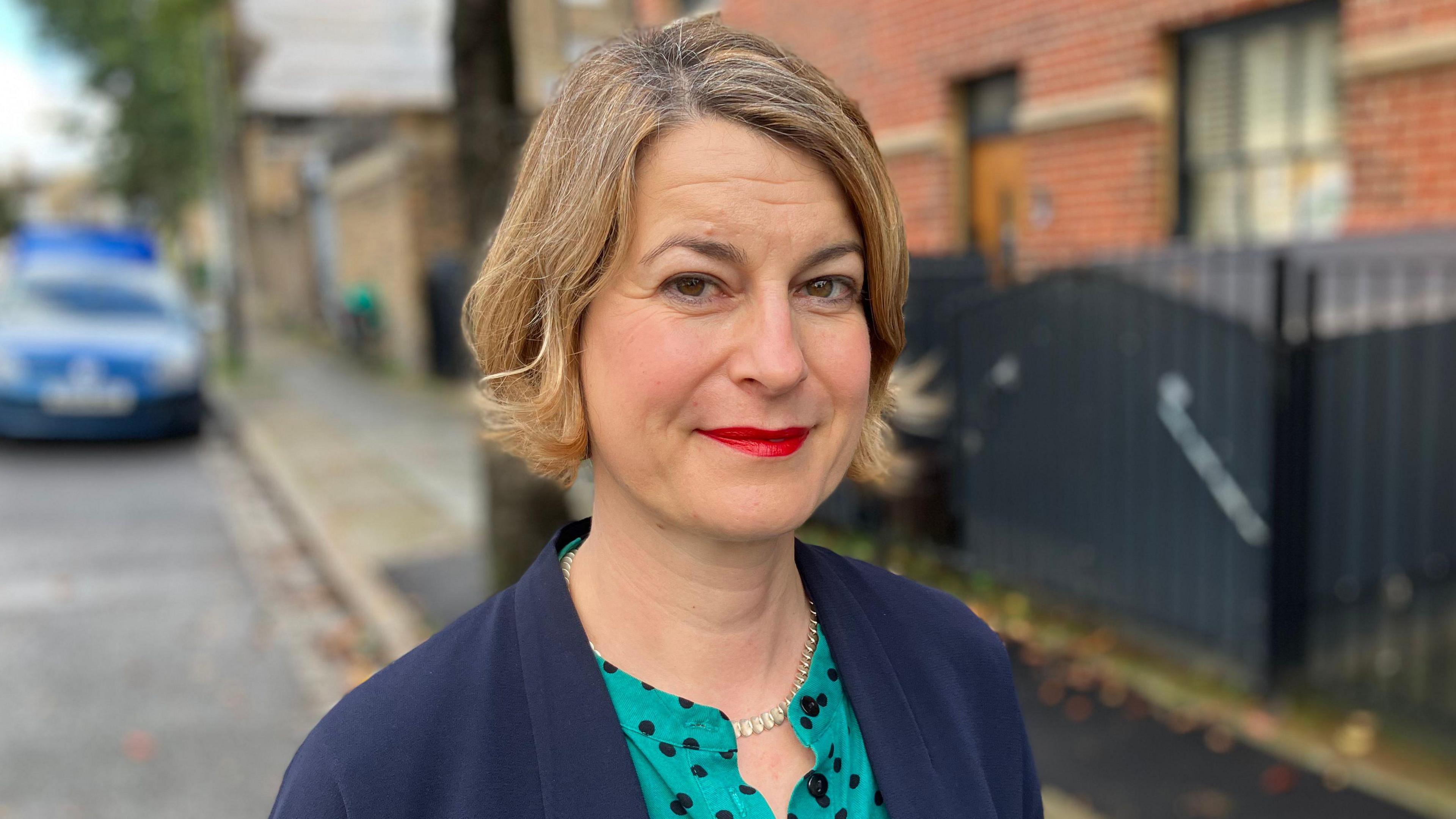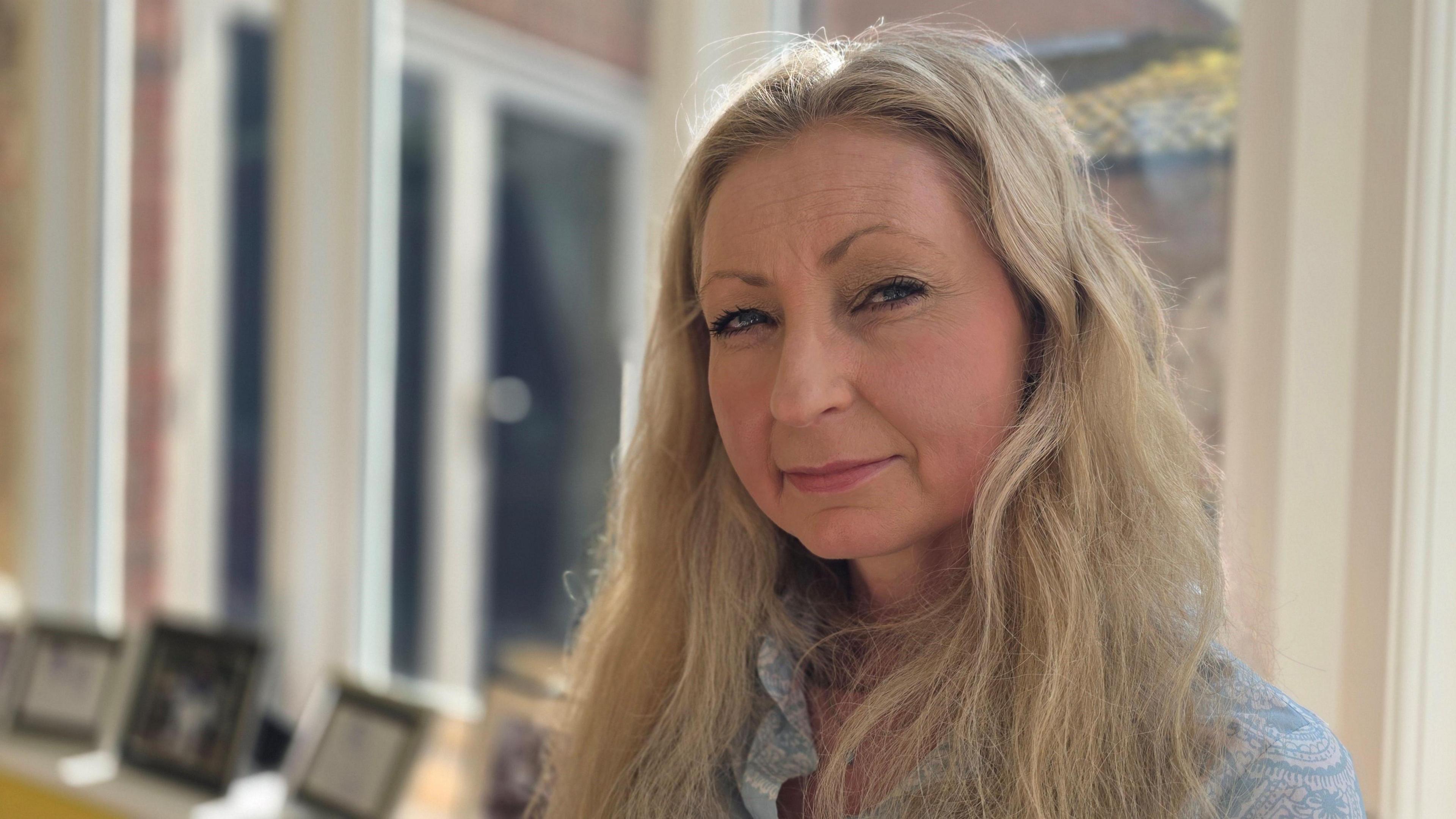School is 'leading UK example' for pupils with Send

Duncan Spalding said he wanted to do his "upmost" to make it possible for children with additional needs to attend a school nearby instead of having to travel
- Published
A school where a fifth of its pupils have special educational needs has been hailed as a leading example for other UK schools to follow.
Aylsham High School in Norfolk is taking a "whole new approach" to inclusivity including adapting its curriculum to support the needs of 230 pupils with special educational needs and disabilities (Send).
Norfolk County Council said there were 12,100 active education health and care plan (EHC) plans in the county, which is a 177% increase since 2016.
Helen Hayes, chair of the Commons Education Committee, said: "We saw a school that was really taking great care at looking at children's mental health and wellbeing. "
Executive head teacher Duncan Spalding said creating an inclusive school was one of his key priorities.
"Very early on in my tenure here, I very much wanted it to be that we were a community school and therefore if a child wanted to come here and if that child had additional needs, we would do our upmost to make it possible for them to attend the school in their community rather than having to go elsewhere," he said.
In 2024-25, the school received £414,596, external in funding to support Send students and Mr Spalding said they had raised more money through a community gym facility and charitable trust it established.
One parent who spoke to Radio 4's The World Tonight programme praised the school for how it had met the needs of her twins with ADHD and autism.
"The Send department actually listened to our son, actually heard him and took on board all of his comments on what was worrying him," she said.
"He's thriving and the future looks so much brighter."

Helen Hayes said some families have a "real battle" for an EHC plan
Hayes praised the school for thinking about Send "from top to bottom" and said she could see there was support for students as soon as they walked through the doors.
While for some families it was a "real battle" to get an EHC plan, she said the school has taken a "whole new approach to inclusivity" where children's needs can be met without the need for the plan.
'Unprecedented demand'
In survey results published by the county council this week, the authority said it was issuing about 170 plans each month with 56% issued within 20 weeks, which is outperforming the regional and national averages.
Penny Carpenter, Conservative councillor and cabinet member for children's services, said parents and carers felt the system was not "working well enough".
"The challenges we face in Norfolk: unprecedented demand, insufficient funding, and a fragmented system, are mirrored nationally," she said.
In the report, 83% of children and young people said they were happy with their learning help, 64% of parents and carers said schools were making reasonable adjustments; however, some felt more needed to be done to identify needs earlier and keep EHC plans up to date.
Also in the report, 50% of professionals raised concerns about insufficient school funding and unrealistic EHC plan expectations.
Get in touch
Do you have a story suggestion for Norfolk?
Follow Norfolk news on BBC Sounds, Facebook, external, Instagram, external and X, external.
- Published21 March

- Published17 August 2023
